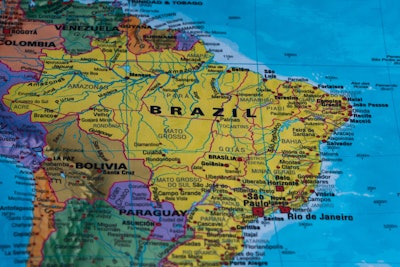
In Rio Grande do Sul, recent exceptional storms and heavy rains have caused devastating damage to the state’s infrastructure and farming.
Latest reports from local media highlight the impacts of recent floods on the indigenous people of the worst-affected state, Rio Grande do Sul in southern Brazil.
Eighty communities have suffered major damage following last week’s heavy rains, according to news agency, Agência Brasil. Many of the 8,000 indigenous people directly impacted have lost their homes and all their possessions. Such reserves of food they had have run out. Particularly badly affected have been those living in the state capital, Porto Alegre.
Starting on April 29, the latest floods followed just one month after the previous spate of heavy rain, the source reports.
Close to 90 — or 80% — of the state’s municipalities have reported flooding, according to the same source earlier this week. The confirmed death toll at that time was 90, with more than 130 people still missing.
Brazil’s President Luiz Inácio Lula da Silva has announced the release of emergency federal government funding for Rio Grande do Sul. After this initial “first-aid” funding, he committed to further support after discussion with the state’s governor, reported Agência Brasil.
Significant impacts on state's poultry, pig producers
Ten poultry and pig farms in Rio Grande do Sul were known to have completely or partially suspended production due to the effects of flooding, according to the Brazilian Association of Animal Protein, ABPA. Some of the premises were rendered completely out of action, while others were facing extreme operational challenges due to difficulties linked to the transport of the workforce, inputs, and animals. For many more, water, electricity and communication systems have failed.
For ABPA, the first priorities were to save lives and provide essential supplies for those who have lost their livelihoods — followed by providing feed and care to the flood-affected poultry and swine. With the impacts spread so widely across the state, ABPA expressed concerns about the food supply to the population of Rio Grande do Sul.
The state accounts for around 20% of Brazil’s total pork production, and 11% of its poultry meat. According to ABPA, residents could have to wait at least 30 days for normal production to resume.
Before the adverse weather system hit Brazil at the end of April, forecasts pointed to the prospect of further increases in national broiler and egg production this year.
















